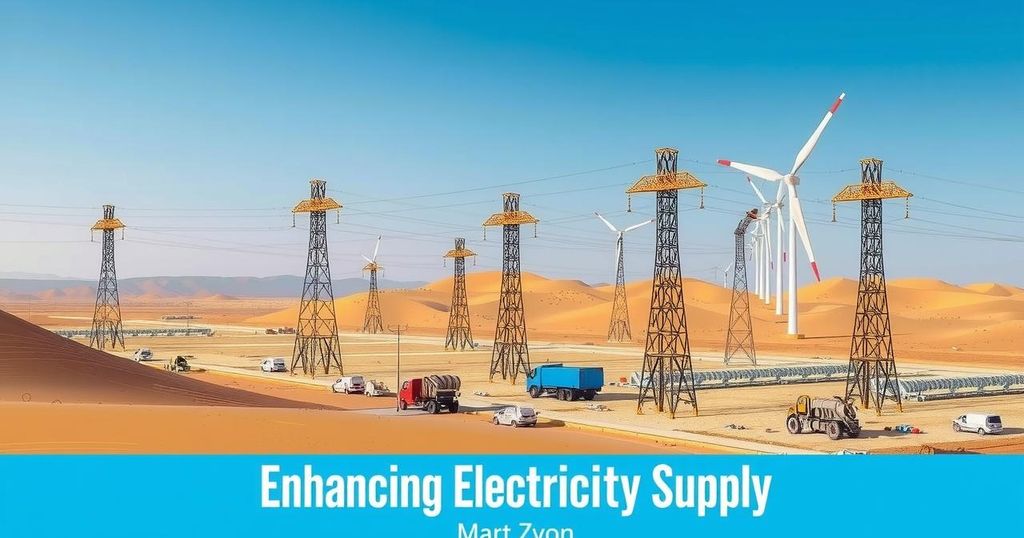Iraq is initiating urgent measures to address a projected electricity shortfall this summer after the US ceased waivers allowing electricity imports from Iran. Prime Minister Mohammed Shia Al Sudani is advancing projects to enhance domestic gas production and diversify energy sources, including agreements with Turkmenistan and TotalEnergies. The government aims for energy independence amid geopolitical challenges.
Iraq is urgently taking steps to counter an anticipated electricity shortage this summer following the United States’ decision not to renew a waiver that previously permitted the country to import electricity from Iran without facing sanctions. The US embassy in Baghdad indicated that this action is part of the administration’s broader strategy designed to curb Iran’s nuclear aspirations, ballistic missile activities, and support for terrorism, urging Iraq to achieve energy independence promptly.
Even as the second-largest producer within OPEC, Iraq remains reliant on Iran for approximately one-third of its electricity needs, importing 500 megawatts of electricity and 50 million cubic meters of gas daily. In response to the challenge posed by renewed sanctions, Iraqi Prime Minister Mohammed Shia Al Sudani convened a meeting to address electricity supply issues and advance projects aimed at developing gas reserves.
Key initiatives include connecting power stations with gas sources and installing floating gas import platforms, as highlighted by the Electricity Ministry spokesman, Ahmed Moussa. Concurrently, Minister Ziad Ali Fadel has laid out plans for electricity supply and fuel operations, while Minister of Oil Hayan Abdul Ghani elaborated on strategies to ensure fuel delivery to power plants. Additionally, Iraq is finalizing an agreement with Turkmenistan to import gas, further diversifying its energy sources.
Domestic developments include the March 2022 initiation of electricity imports from Jordan via a 340-kilometer line, with further plans to connect to the Gulf Cooperation Council’s power grid by year-end. In a recent meeting between US Charge d’Affaires Daniel Rubinstein and Iraqi Parliament Finance Committee Head Atwan Al Atwani, discussions revolved around the implications of US sanctions on Iraq’s electricity sector.
The Iranian government has criticized the cessation of the sanctions waiver, labeling it as “illegal” and arguing that such sanctions lack justification. Since 2018, Iraq has faced pressure from the US to diminish its dependency on Iranian energy imports, which have been subjected to various sanctions. Efforts are ongoing to enhance domestic gas production, with the country possessing an estimated 3,714 billion cubic meters of natural gas reserves.
Significant contracts have been made, including a partnership with Ukraine’s Ukrzemresurs to boost production at the Akkas gasfield, and a $27 billion collaboration with TotalEnergies for oil, gas, and renewable energy projects, alongside additional solar power initiatives. These measures signify Iraq’s commitment to establishing its energy independence amid geopolitical pressures.
In summary, Iraq is accelerating its energy development projects in response to the United States’ cessation of sanctions waivers for Iranian electricity imports. By forging new partnerships, enhancing domestic gas production, and diversifying electricity sources, Iraq aims to achieve energy independence while navigating the challenges posed by external sanctions. Recent agreements, both for traditional and renewable energy, reflect Iraq’s strategic focus on bolstering its electricity supply in a sustainable manner.
Original Source: www.thenationalnews.com




